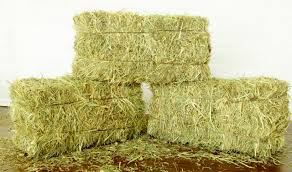Farmer’s Guide to Trucking Regulations available to Ohio Farm Bureau members
The guide includes a farm driver checklist, overview of state and federal regulations and exemptions, CDL qualifications and more.
Read More
The hottest days of July never fail to remind me of hay baling season. As a little kid, this meant riding on the tractor or the four-wheeler while my grandpa drove the tractor and a few men helped stack. I remember being amazed as those guys hefted the bales from the ground onto the wagon and then the man on the wagon restacked it into perfectly square rows upon rows. I was fascinated that those rows could go so high and they never tipped over or swayed. It was like an art, and I could not wait to learn how to construct this masterpiece.
I did not realize at the time, but many of those men were older than I remembered and the reason I got to help was that it became too hard for many of those men to bale. It started with me learning how to stack hay on the wagon; I was already in charge of lifting the bales onto the wagon. Honestly, there really is not a whole lot of talent to that; it is sheer brute strength. But there is truly an art to stacking hay well. Bales need to be solidly placed, stable and there is a pattern to great stacking.
My grandfather’s favorite method was two bales in the middle placed vertically, and then bales stacked horizontally with the ends touching the vertical bales. He claimed this created the most solid and stable stacking method and had been used in his family for a long time. I was shown pictures of my grandfather and his brother as young men standing with other young men in front of hay wagons stacked full of bales to support their dairy operation. I longed for days like these to be able to see the sense of community and pride that came from something so simple, yet difficult.
Now, I will not lie to you, when I was a teenager, I complained my fair share about baling hay. It never fails that the best time to bale is during the hottest days of July and August, in the middle of the day. Baling during the heat eliminates the possibility of the hay having too much moisture and spoiling or catching your barn on fire.
It is highly suggested to wear long pants and sleeves because the amount of chaff and poison ivy is insane. My grandfather was lucky — never in his life had he had a case of poison ivy — not even after baling, hunting or even walking through the stuff. That, unfortunately, is not a gene that I inherited. If I even walk near poison ivy, there is a good chance I will be itching within a day or two.
So, knowing this and understanding that hay is grass (and everything else in the field chopped up and baled), baling days meant I was going to be itching for the next several weeks. Yet, the one thing I do remember is the pride that I took when we hauled those wagons home and pulled them into the barn.
One of the last tasks that my grandfather and I completed together, the summer before he died, was hay baling. He managed to get on the tractor and cut and rake all the hay. However, when it came time to bale, he was not able to turn and look back while driving. For the first time in my life, I actually was in charge of the baling. I will never forget him sitting in his Kubota directing me how to turn, not to get too close to the fence, and closely supervising my every move. It was not perfect, but we managed to get our fields baled, stacked and put in the barn.
He died that winter and we still have a few bales left that are not any good from that hay season, but whenever I walk into the barn and see those bales, I smile and a tear comes to my eye because even though he never acknowledged it, I think he was proud that I had managed to complete the entire task myself.
Today, very few teenagers spend their summers baling hay in the heat of July and August. It makes me sad and a bit nostalgic because the lessons I learned under that bright, burning sun still stick with me today. One of those lessons is patience under fire. It literally feels like fire when you are out in the field baling, but you cannot go fast or you can risk stacking the bales wrong and they fall off the wagon, or getting overheated.
You must work quickly, efficiently, but with a measure of patience. In the end, all your hard, sweaty, back-breaking work will be worth it. I honestly think that everyone, not just teenagers, could learn so much from spending a day baling hay.
Submitted by Christen Clemson, a member of the Trumbull County Farm Bureau, who farms with her family in Mecca Township.
OFBF Mission: Working together for Ohio farmers to advance agriculture and strengthen our communities.


The guide includes a farm driver checklist, overview of state and federal regulations and exemptions, CDL qualifications and more.
Read More


ODA will enroll 500,000 acres into the program for a two-week sign-up period, beginning April 22, 2024, through May 6, 2024. Contact local SWCD offices to apply.
Read More

Katie Share of Columbus has been named ExploreAg and Youth Development Specialist for Ohio Farm Bureau.
Read More

Mary Klopfenstein of Delphos has been named Young Ag Professional and Ag Literacy Program Specialist for Ohio Farm Bureau.
Read More

The plan has been updated to give sole proprietors access to more rate stability and a smart solution that offers potential savings on health care.
Read More

The American Farm Bureau Federation, in partnership with Farm Credit, is seeking entrepreneurs to apply online by June 15 for the 2025 Farm Bureau Ag Innovation Challenge.
Read More

Adele Flynn of Wellington has been elected treasurer of the Ohio Farm Bureau Federation and now holds the third highest elected office in Ohio’s largest and most influential farm organization.
Read More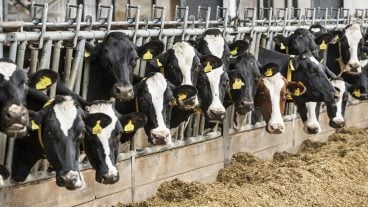
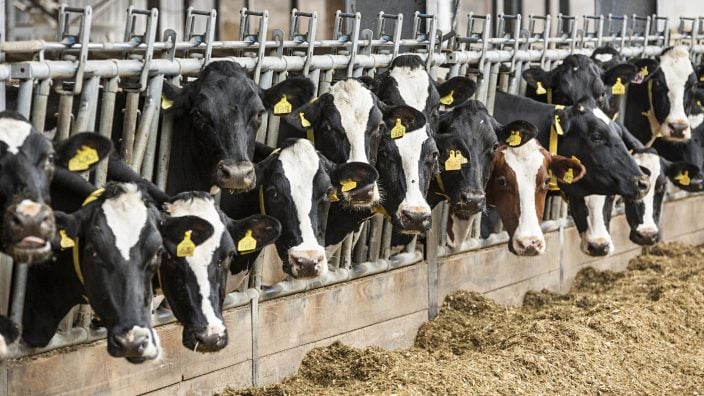
Producers are urged to work with their veterinarian to practice enhanced biosecurity measures and review and limit cattle movements within production systems.
Read More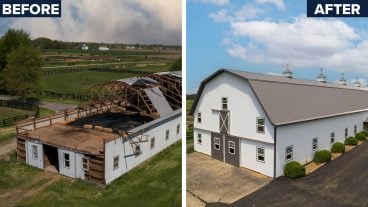
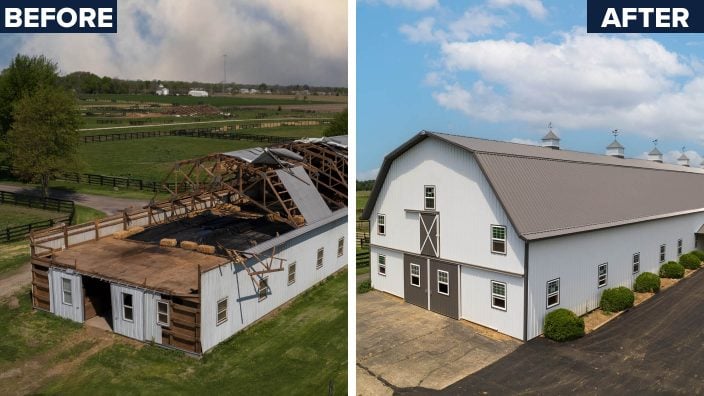
The changing seasons bring with them the need to thoroughly inspect pole barns for any damages that may have occurred during the winter months.
Read More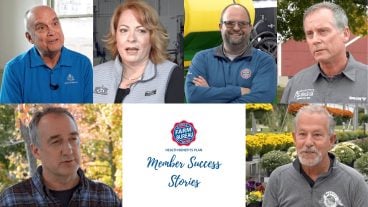
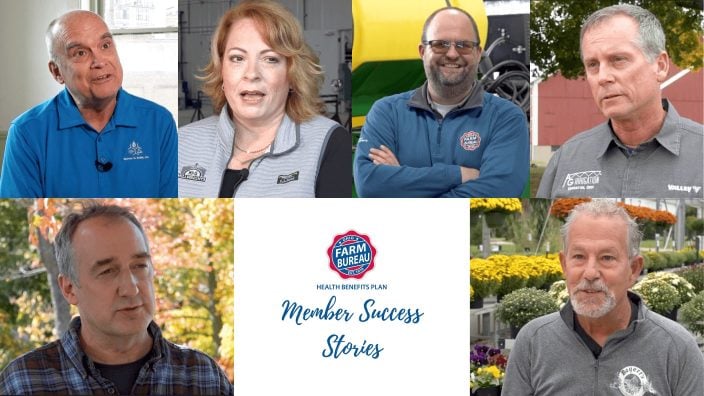
Hundreds of Ohio businesses and sole proprietors are raving about Ohio Farm Bureau’s Health Benefits plan with lower, predictable costs and easy enrollment and administration options.
Read More